Deep State: Sink Georgia to buoy Armenia US policy rift in the South Caucasus
In May 2025, relations between Georgia and the United States emerged from a period of relative calm and began to take on a more contradictory nature. Until then, the administration of President Donald Trump had made almost no public statements on the Georgian issue and had taken no significant steps in this direction.
On May 6, 2025, the U.S. House of Representatives passed the unfriendly MEGOBARI Act, targeting the Georgian government under the pretext of countering “the influence of the Chinese Communist Party, the Iranian Regime, and the Russian Federation in the nation of Georgia.”
On May 11, 2025, the U.S. Defense Intelligence Agency (DIA) released a report containing a biased conclusion that “Russia almost certainly aims to return Georgia to its sphere of influence.”
“Since the parliamentary elections in October, the Georgia Dream-led government has created an environment that enables Russia to increase its influence in the country,” the DIA report stated.
The report barely mentions Azerbaijan, while Armenia receives “compliments” for the alleged deterioration of its relations with Russia.
According to the DIA assessment, Russian-Armenian relations “deteriorated last year,” when Armenia announced a possible withdrawal from the Collective Security Treaty Organisation (CSTO), and Russia responded by launching an information campaign against the “Armenian democracy” and the “pro-Western leadership.”
The report is structured to portray Armenia as a “friendly” country to the United States that is “moving away” from its alliance with Russia, while the Georgian authorities—consistent with accusations from the pro-Western Georgian opposition—are depicted as supposedly a “pro-Russian government.”

Afterwards, U.S. Secretary of State Marco Rubio spoke before the House Foreign Affairs Committee, where Joe Wilson—the main sponsor of the MEGOBARI Act—asked a question that was biased from the start toward the Georgian authorities: “Under your leadership, what will be done to help the State Department impose real cost on the anti-American Georgian dream on behalf of the people of Georgia?”
Marco Rubio responded that “the goal of the United States is our national interests, so we will look at that and say is it in our national interest to have an anti-American government governing an important part of the world and if not, we will take appropriate actions to impose costs on that government.”
These remarks were immediately interpreted by Georgia’s “pro-European” opposition as a sign of support for their attempts at a “revolution.”
However, Marco Rubio’s congratulatory message to Georgia on Independence Day was posted in a “neutral” tone, unlike, for example, the greetings from the Baltic countries, where the “freedom-loving” people of Georgia were primarily congratulated—thereby contrasting them with the “not freedom-loving” Georgian government, according to the Baltic leadership’s perspective.
At the same time, U.S. President Donald Trump congratulated Georgian President Mikheil Kavelashvili on Independence Day, mentioning the “peaceful and productive relationships with the Georgian government”:
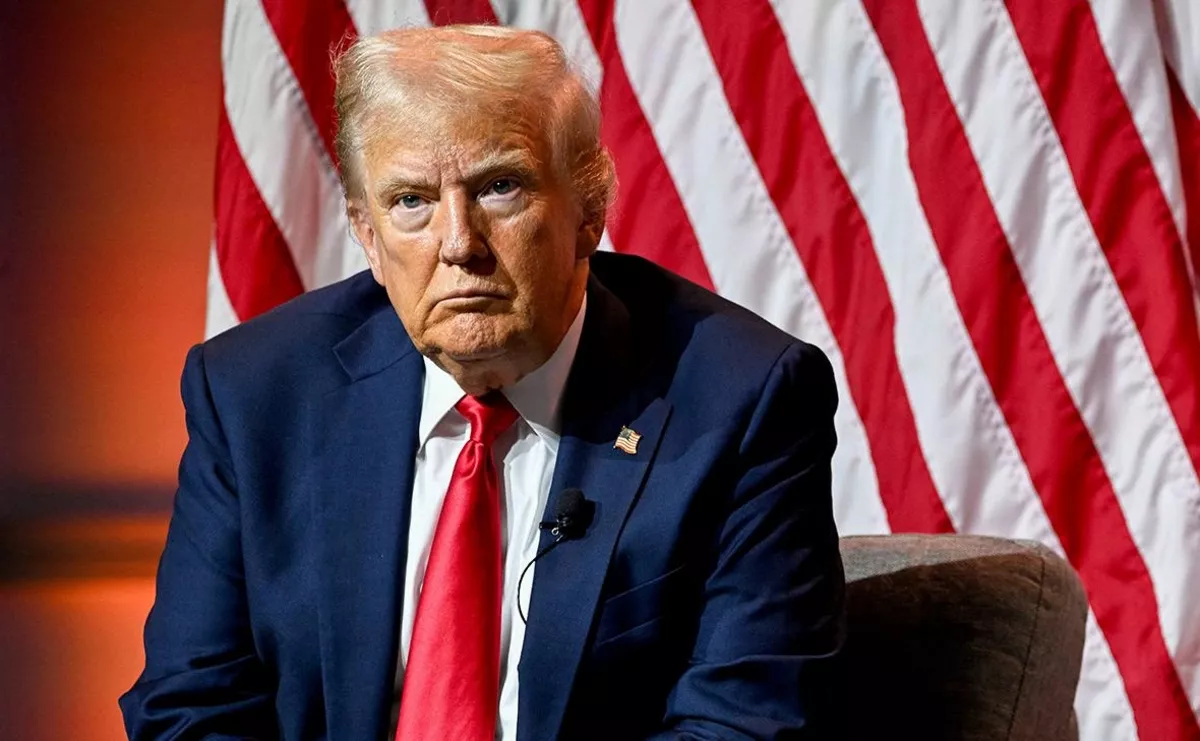
“Dear Mr. President: Today marks the 107th anniversary of Georgia’s independence—an epic milestone in the Georgian people’s fight for sovereignty, security, and national identity following generations of adversity and hardship.My Administration is committed to strengthening peaceful and productive relationships with the Georgian government. I look forward to deepening the economic ties between our two countries, including by supporting fair trade and expanding the scope of our bilateral cooperation. I offer my best wishes to the people of Georgia as they commemorate this significant event in their nation’s storied history.”
Donald Trump’s congratulatory message was positively received by the Georgian authorities. However, immediately after Georgia’s Independence Day celebrations, the U.S. Embassy in Tbilisi released information stating that Bidzina Ivanishvili, the honorary chairman of the ruling Georgian Dream party, had refused to meet with U.S. Ambassador Robin Dunnigan.
“At Secretary Rubio’s request, on May 22 Ambassador Dunnigan asked for a meeting with Bidzina Ivanishvili to communicate a message from the Administration and to again relay specific steps the Georgian government can take to show it is serious about resetting its relationship with the United States. It is our hope that the Georgian government sincerely wishes to return to 33 years of partnership and friendship with America and the American people,” the U.S. Embassy statement said.
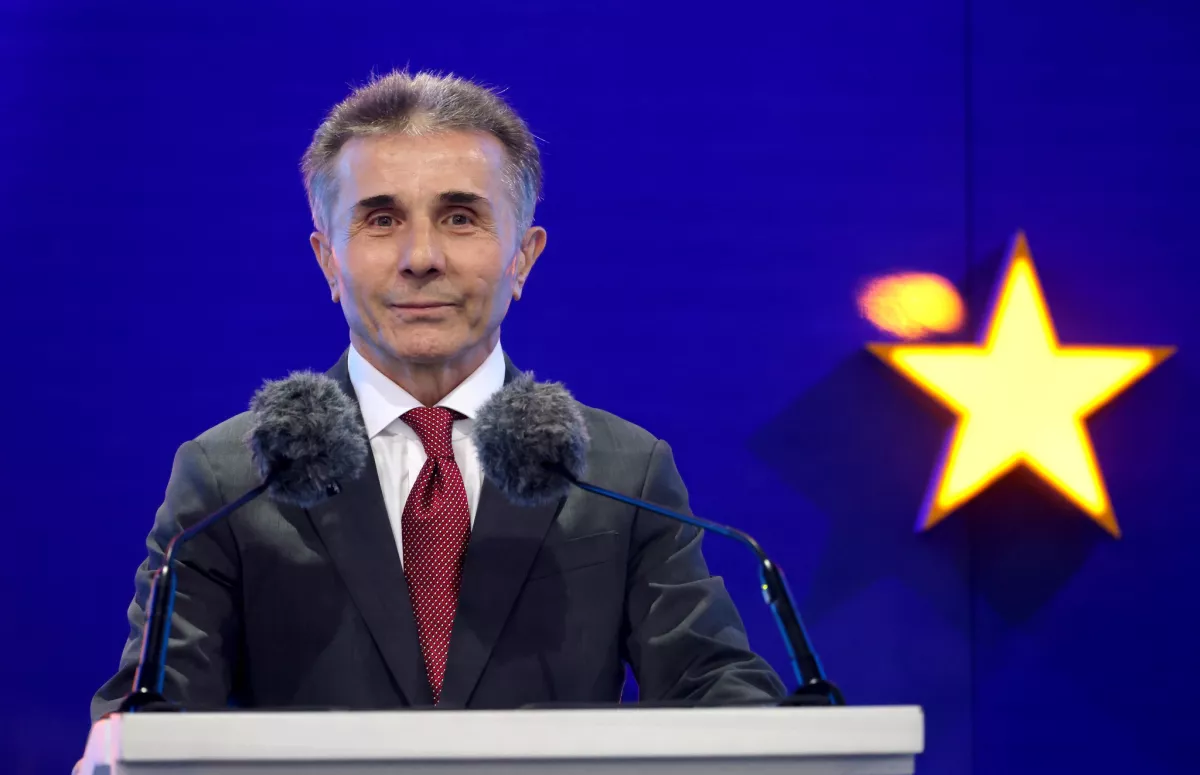
Bidzina Ivanishvili confirmed his refusal to meet with U.S. Ambassador Robin Dunnigan, citing continued pressure from Washington as the reason: “The Embassy did indeed reach out to the government to convey a request for a meeting on behalf of Secretary of State Rubio. I expressed my respect but declined—as I did previously when sanctions were imposed against me. Under such conditions, I consider it unacceptable to discuss matters of state, as it creates an internal conflict between personal interests and public responsibility.”
According to Ivanishvili, alongside his refusal, the ambassador was offered a meeting with the Prime Minister of Georgia instead: “The Prime Minister is not subject to any formal or informal sanctions and therefore cannot be burdened by any personal blackmail. However, the ambassador declined this proposal, which only confirms our belief that they view personal blackmail as a key factor in pushing the Georgian side toward decisions involving state interests.”
As a result, an interesting split has emerged in U.S.-Georgia relations—from the American side. U.S. President Donald Trump maintains a very friendly attitude toward Georgia, the Georgian people, and the Georgian government. He does not question the legitimacy of the current authorities, nor does he accuse them of being “under Russian influence” or, even less, of “anti-Americanism.”
However, a different picture is seen in the approach taken by the U.S. Congress—where the most vehemently anti-Georgian stance is held by Congressman Joe Wilson—as well as in two agencies: the State Department, headed by Secretary of State Marco Rubio, and the intelligence community, reporting to U.S. Director of National Intelligence Tulsi Gabbard.
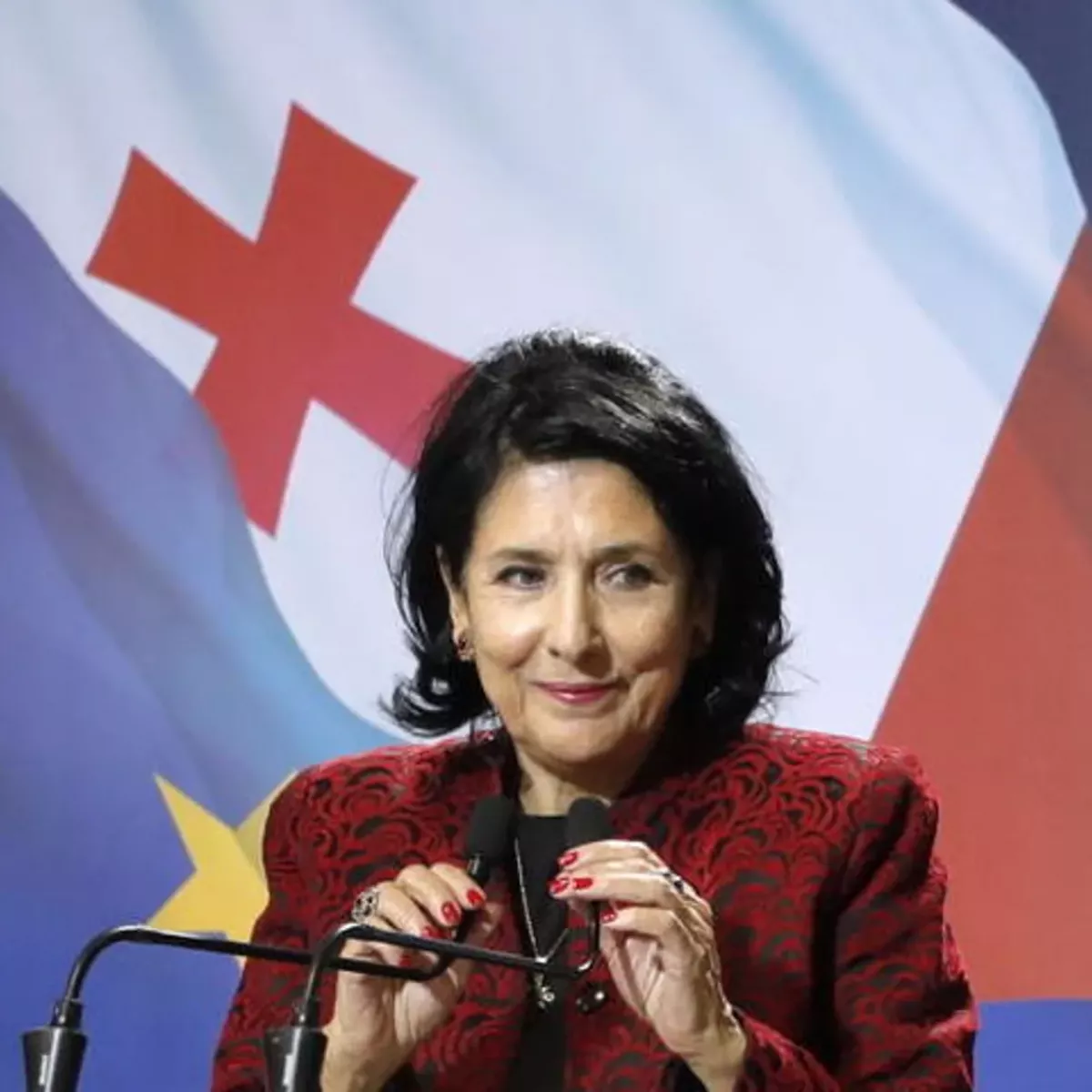
These institutions, to varying degrees, echo the narratives coming from Paris, former French national and ex-President Salome Zourabichvili, and the “pro-European” opposition in Georgia.
If one analyses what unites the views of Joe Wilson and Tulsi Gabbard, a clear common thread emerges: their past “sympathy” toward Armenia, the Armenian diaspora, and, more broadly, Armenian nationalism with its excessive claims against neighbouring states. This explains a great deal.
As is well known, there are few more persistent real adversaries of Georgian statehood and Georgia itself than Armenian nationalists—despite their occasional declarations of “friendship” and “Christian solidarity” with Georgia.
As a result, Western politicians who fall under the influence of the Armenian lobby—and the historical myths and geopolitical narratives associated with it—begin to view the South Caucasus not through the lens of their own national interests, but through the perspective of “long-suffering” Armenia. An Armenia that, due to its supposed exceptional victimhood, is seen as entitled to everything and permitted any geopolitical alliance.
Consequently, American politicians swayed by the Armenian lobby start to “overlook,” for example, Armenia’s deep cooperation with Tehran and Moscow, its continued alliance with Russia through the CSTO military bloc, multi-billion-dollar sanction-evasion schemes routed through Armenia, and much more.
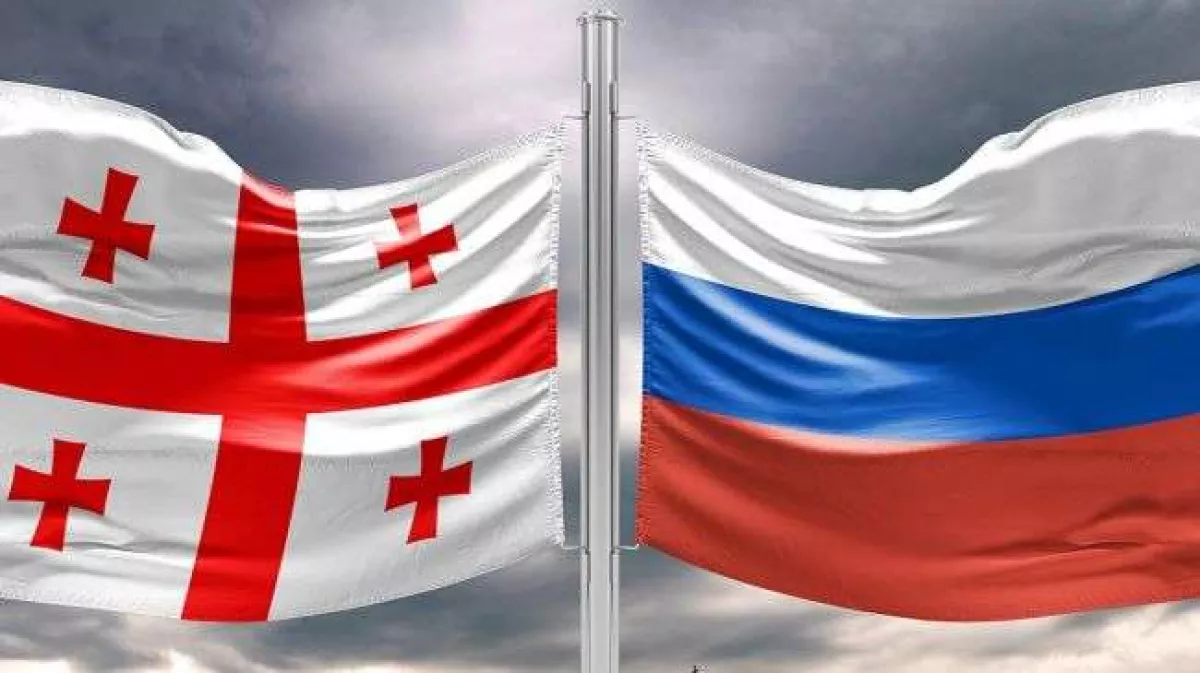
At the same time, Georgia’s simple desire to maintain peaceful relations with Russia—and its refusal to become entangled in anti-Russian military adventures—is, for such politicians, enough to accuse Tbilisi of “subordination to Russia” or even “anti-Americanism.”
In general, the strategy of the U.S. “deep state” toward the South Caucasus in recent times can be summed up by one phrase: “sink Georgia so Armenia can float.”
This strategy aligns perfectly with the goals of the so-called “Armenian caucus” in the United States, which operates through the powerful Armenian diaspora.
The reasons behind this are not difficult to discern. A stable, dynamically developing, and peaceful Georgia is inconceivable without mutually beneficial and neighbourly relations with Türkiye, Azerbaijan, and the Turkic world at large. Such cooperation renders Armenia—with its excessive revanchist ambitions—effectively redundant. In that context, Armenia would be forced to accept new realities, pursue a sober and pragmatic foreign policy in line with its economic and resource capacity, abandon its belligerent rhetoric towards neighbours, and—should a peaceful settlement and the opening of transit routes occur—refrain from demanding disproportionate privileges for transit services.
Even Armenian analysts themselves acknowledge that their lobby’s influence across American institutions is far from uniform. The Armenian lobby holds considerable sway in the U.S. Congress, where it maintains the so-called “Armenian Caucus”—a bipartisan group of lawmakers who consistently advocate for Armenia and Armenian nationalist interests through the legislative branch. However, its influence over the U.S. executive branch is more selective—tied to certain individuals and what is often described as the “Deep State.”
Wherever U.S. national interests prioritise stability in Eurasia and mutually beneficial cooperation with Türkiye and Azerbaijan, the Armenian lobby’s often hysterical demands—couched in appeals to alleged “human rights violations” or mythologised historical grievances—are simply disregarded.
Even politicians who previously belonged to the “Armenian Caucus” in Congress are not always able to openly promote Armenian lobby interests once they assume positions in the executive branch. Still, they often issue statements or include certain formulations in official reports as a symbolic gesture of continued loyalty to those interests.
This is why the recent jubilation among Armenian nationalists is unsurprising after learning that Marco Rubio would be appointed U.S. Secretary of State in Donald Trump’s administration, and that the intelligence community would be headed by Tulsi Gabbard—who in 2017 illegally visited the occupied Azerbaijani territories in Karabakh.
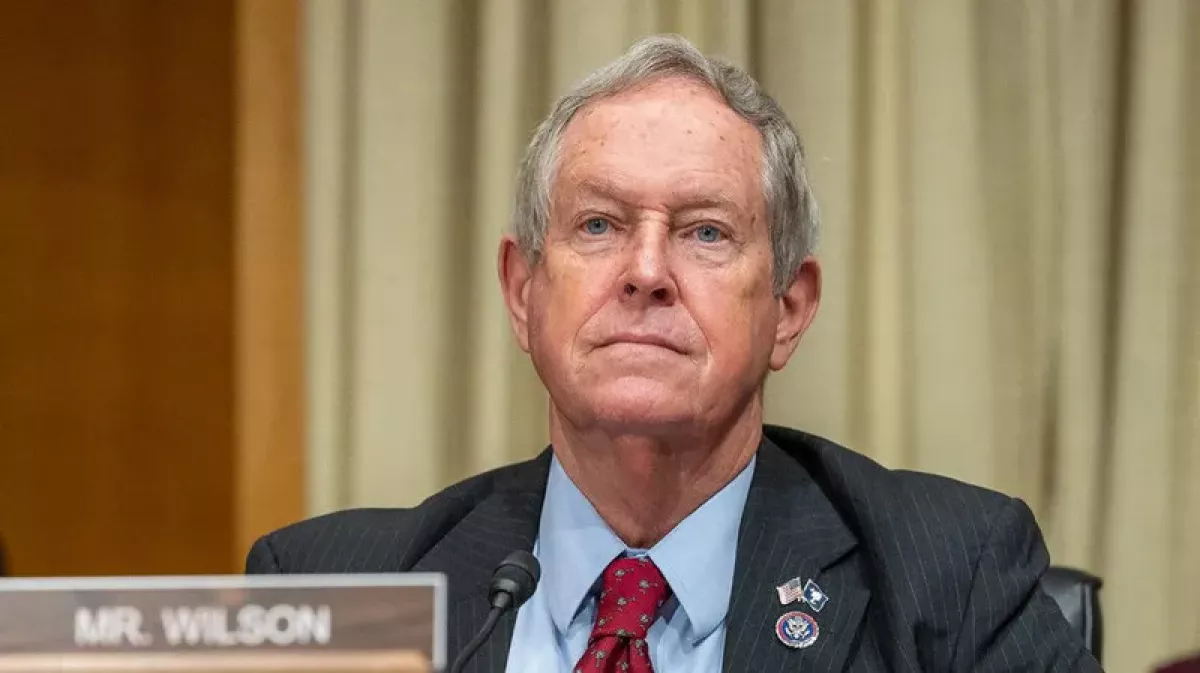
As for Joe Wilson, he is also a staunch supporter of Armenia and a long-time ally of the Armenian lobby. Over the past year, he devoted considerable effort to drafting and promoting the anti-Georgian MEGOBARI Act. Yet, at the same time, he has maintained a warm and friendly stance toward the Armenian leadership, visiting Yerevan and showering praise on Armenian officials.
Similarly, Robin Dunnigan was appointed U.S. Ambassador to Georgia by the Biden administration—at a time when Washington had clearly taken a course toward sidelining the ruling Georgian Dream party.
It is hardly a coincidence that anti-Georgian sentiment has been most pronounced in those branches of U.S. government where key positions are held by individuals either directly affiliated with, or favourably disposed toward, the Armenian lobby. The likely objective behind this alignment is also discernible: to pressure Bidzina Ivanishvili and his party into abandoning a foreign policy rooted in Georgia’s national interests, and instead steering it toward one that more closely aligns with the priorities of Armenia and its influential lobby in the United States.
Despite the fact that such a policy shift would entail enormous economic losses for Georgia—not to mention the risk of internal destabilisation and entanglement in external geopolitical games that could endanger Georgian statehood itself—attempts in this direction appear to be underway.
One such threat is the potential opening of a “second front” in the war against Russia, which would have disastrous consequences for Georgia. And yet, certain forces within the so-called Deep State seem to be actively pursuing this course.
It is quite possible that there was an attempt by these forces to “summon” Bidzina Ivanishvili and issue him veiled ultimatums via the U.S. Ambassador to Georgia. The apparent goal: to pressure him, in his capacity as honorary chairman of Georgian Dream, to steer the government formed by his party in a direction more aligned with Washington’s current agenda—even if that agenda runs counter to Georgia’s national interests.

As for the content of those possible ultimatums, one can only speculate. Yet it is telling that U.S. Ambassador Robin Dunnigan “volunteered” to meet with Bidzina Ivanishvili shortly after the resignation of former Prime Minister Irakli Garibashvili from both the chairmanship of Georgian Dream and from politics altogether. Garibashvili, it should be recalled, was the very official who, during his tenure, allowed French armoured vehicles to pass through Georgia into Armenia and signed a wholly unnecessary “strategic partnership” agreement with Yerevan.
Fully aware of the likely tone of such a meeting and the demands that would be made of him, Bidzina Ivanishvili rightly declined. And he was absolutely correct to do so. Georgia has a sitting prime minister and a foreign minister — it is with them that Ambassador Dunnigan and other U.S. officials should conduct any necessary dialogue regarding bilateral relations. Preferably without ultimatums, and with full respect for Georgia’s national interests.
Vladimir Tskhvediani, Georgia, exclusively for Caliber.Az








